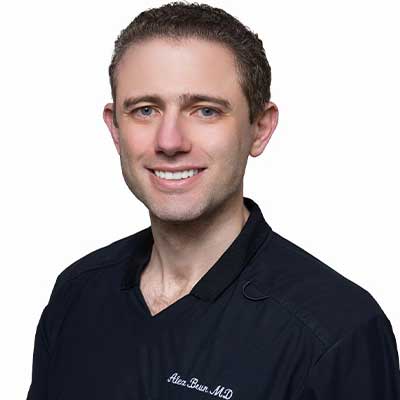Colon Cancer Specialist for Treating Colon Cancer
Our experienced gastroenterologists offer advanced colon cancer care that prioritizes your well-being.
At TriboroughGI, we understand the challenges that come with a colon cancer diagnosis. That’s why our team of highly skilled gastroenterologists works together to provide advanced, compassionate care to each patient.
From initial care and diagnosis to treatment and follow-up care, we use the latest technologies and techniques to ensure the best possible outcomes for our patients. We also offer personalized treatment plans tailored to your unique needs and goals, focused on minimizing side effects and maximizing quality of life.
Take the first step towards effective colon cancer care. Schedule a consultation with TriboroughGI today
Colon Cancer Specialist: Discover the Benefits of Their Treatments
- Advanced and personalized colon cancer care
- Experienced and compassionate gastroenterologists
- Latest technologies and techniques for the best possible outcomes
- Tailored treatment plans to minimize side effects and maximize quality of life
Our Colon Cancer Specialists
Our team of highly qualified and experienced gastroenterologists work together to provide comprehensive colon cancer care. We are dedicated to providing the highest level of care and ensuring the best possible outcomes for our patients.
Where are we located?
For your convenience, we have several offices in New York City. Please find below the location nearest you:
Our Locations
Important information about Colon Cancer
important information about this disease:

- Colorectal cancer is the second leading cause of cancer-related death among men and the third leading cause among women. However, if the disease is caught in its early stages,
What is colon cancer?
Like other cancers, colon cancer is the result of abnormal cell growth. It typically arises from small clumps of cells (polyps) that form on the inside of the large intestine (colon). Over time, some polyps can evolve into cancer. Colon cancer is much more common in adults over 50 but can occur at any age.
Symptoms
Symptoms generally aren’t obvious until the cancer has progressed, and may include:
- Rectal bleeding or blood in your stool
- Persistent abdominal cramping, gas, or pain
- A change in bowel habits or the consistency of your stool
- The sensation that your bowel doesn’t empty completely
- Weakness
- Fatigue
- Unexplained weight loss
How can I prevent colon cancer?
There is no guaranteed method of avoiding colon cancer, but a colon cancer screening colonoscopy is by far the most effective tool available for preventing or catching the disease in its earliest stages when treatment is most successful.
During a colonoscopy, your GI specialist can remove colon polyps before they evolve into cancer and identify other concerning changes in your colon that require treatment. It’s generally recommended everyone have a screening colonoscopy by age 50, sooner if you have an increased risk of developing colon cancer due to:
- A family history of colon cancer
- History of inflammatory diseases of the colon, such as ulcerative colitis and Crohn’s disease
- An inherited disorder, such as Lynch syndrome
- Diabetes
Lifestyle factors that increase your risk of colon cancer include:
- Obesity
- Lack of physical activity or exercise
- A diet that’s low in fiber and high in saturated fat
- Heavy alcohol use
- Smoking
Adopting healthy habits now and undergoing a screening colonoscopy can reduce your risks and possibly prevent colon cancer from affecting your health.
Treatment
Treatments vary and depend upon how advanced the cancer is and where it’s located in your colon. Small cancerous polyps, for instance, may be removed during a colonoscopy. Larger polyps and tumors may require more extensive surgery.
Your Triborough GI provider takes time to carefully explain your treatment options so that you’re part of the decision-making process.
Frequently Asked Questions (FAQs)
Risk factors for colon cancer include age, family history, a personal history of colon polyps or inflammatory bowel disease, a diet high in processed foods, and a sedentary lifestyle.
During a colonoscopy, a long, flexible tube with a camera on the end is inserted through the rectum to examine the colon for polyps or cancerous growths. The procedure is usually done under sedation and takes about 30-60 minutes.
Colon cancer is treatable, especially if caught early. Treatment options may include surgery, chemotherapy, and radiation therapy. The best treatment plan will depend on the stage and location of the cancer, as well as the patient’s overall health and goals.
Yes, it is possible to have a good quality of life during colon cancer treatment. Treatment can be tailored to minimize side effects and improve quality of life, and many patients are able to continue working and doing the things they enjoy during treatment. A supportive care team, including medical professionals and loved ones, can also help improve quality of life during treatment.
The American Cancer Society recommends that individuals at average risk of colon cancer should start regular screening at age 45, while those at higher risk should start earlier and get screened more frequently.
Schedule a visit today at Triborough GI for expert care you can rely on. Triborough GI has the top NYC Colon Cancer doctors in Brooklyn, Staten Island, and the Bronx. Our GI specialists provide only the most specialized and extensive care. Our motto is that the patient’s care comes first! Highly reputable and top-rated in NYC, our gastroenterologists will thoroughly examine, diagnose, and come up with a treatment plan for your colon cancer.
Schedule an appointment at (718) 795-2734 today with one of our Triborough GI doctors at one of our Brooklyn, Staten Island, or Bronx locations for any questions or concerns you have regarding Colon Cancer treatment.











